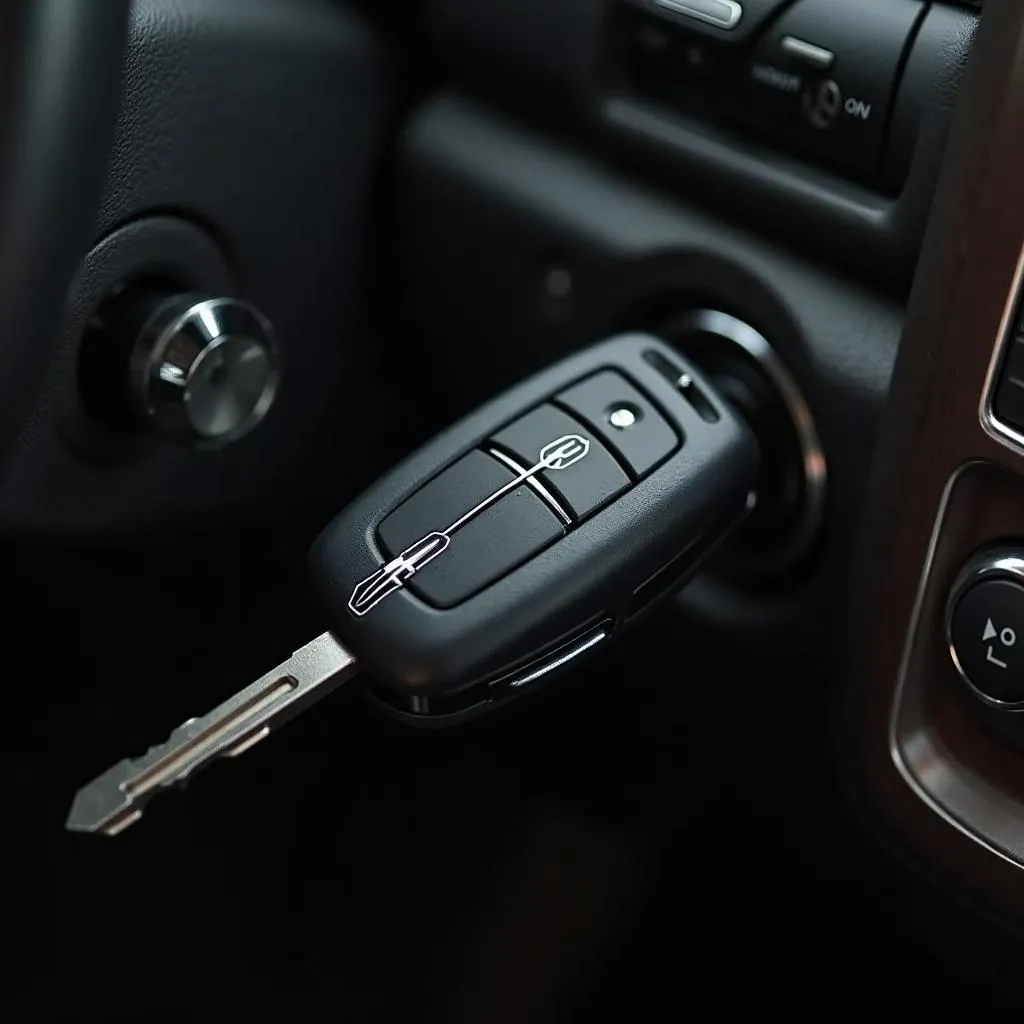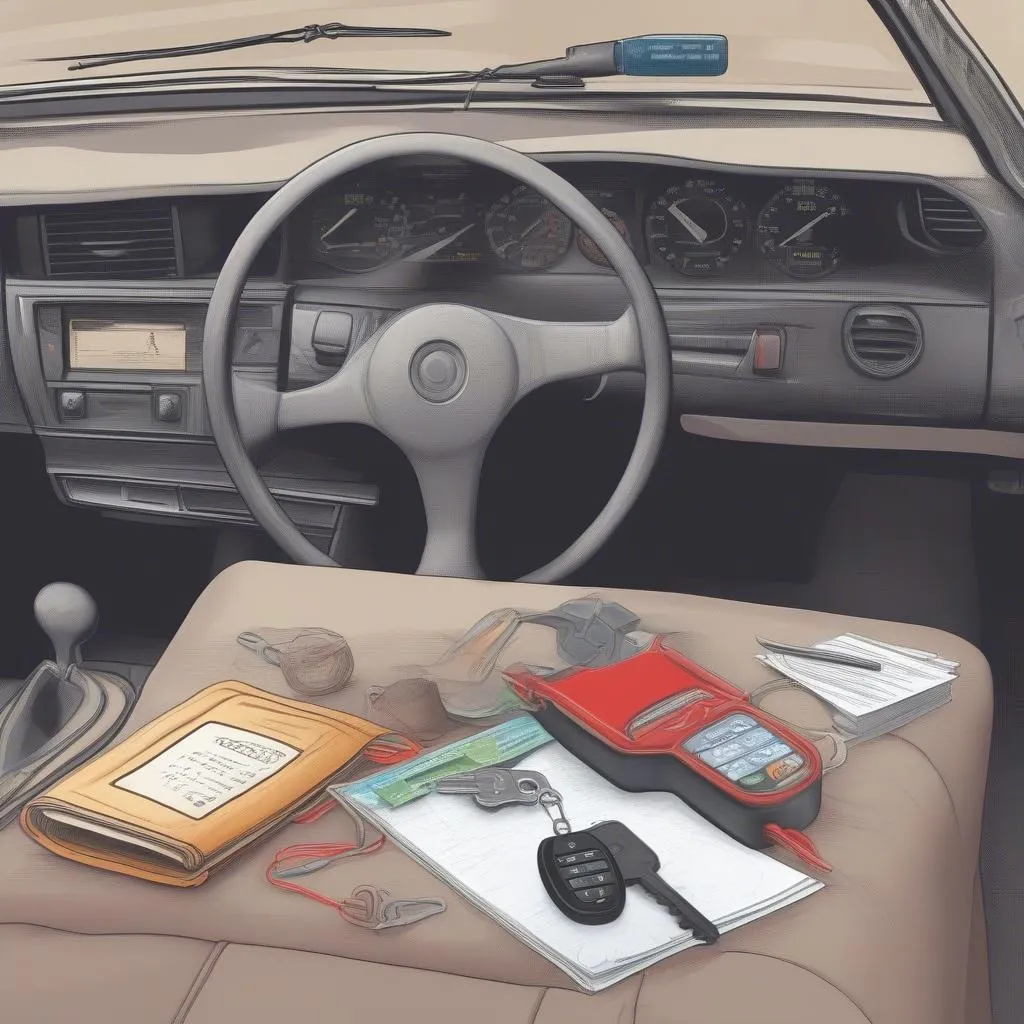The Warner Electric brake ERS-68 is a common sight on many trailers, providing reliable and efficient braking power for safer towing. However, like any mechanical component, it can sometimes experience issues. This comprehensive guide will walk you through common problems encountered with the ERS-68, how to diagnose them, and the potential solutions, including remote software diagnostics, programming, and installation to get you back on the road quickly and safely.
Understanding the Warner Electric Brake ERS-68
Before diving into troubleshooting, it’s beneficial to understand the basic components and functionality of the ERS-68. This brake system operates on electro-hydraulic principles, using an electric actuator to apply hydraulic pressure to the brake shoes, which then press against the brake drum to slow or stop the trailer. The ERS-68 is designed for ease of installation and maintenance, making it a popular choice for trailer manufacturers.
Common Issues and Troubleshooting Tips
Several factors can contribute to problems with your ERS-68 brake system. Here’s a breakdown of some common issues and how to address them:
1. No Trailer Brakes
- Problem: The trailer brakes fail to engage when the tow vehicle’s brake pedal is pressed.
- Possible Causes: Loss of electrical power to the trailer, a blown fuse in the tow vehicle or trailer, a malfunctioning brake controller, a faulty brake actuator, or worn-out brake shoes.
- Troubleshooting:
- Check all electrical connections between the tow vehicle and the trailer, ensuring they are clean, tight, and free of corrosion.
- Inspect the fuses related to the trailer braking system in both the tow vehicle and trailer.
- Verify the brake controller is properly calibrated and sending a signal to the trailer brakes.
- Test the voltage at the brake actuator using a multimeter. If there’s no voltage when the brake pedal is applied, there’s likely an issue with the wiring or controller.
- If voltage is present at the actuator but the brakes don’t engage, the actuator itself may be faulty and require replacement.
2. Trailer Brakes Lock Up
- Problem: The trailer brakes engage prematurely or lock up, even with minimal pressure on the tow vehicle’s brake pedal.
- Possible Causes: A malfunctioning brake controller, a short circuit in the wiring harness, or a faulty brake actuator.
- Troubleshooting:
- Check the brake controller settings and ensure they are appropriately calibrated for the trailer’s weight and braking characteristics.
- Inspect the wiring harness for any signs of damage, chafing, or exposed wires that could cause a short circuit.
- If the issue persists, the brake actuator may be faulty and need replacement.
3. Uneven Braking
- Problem: One wheel locks up before the other, or the trailer pulls to one side when braking.
- Possible Causes: Uneven brake shoe wear, improper brake adjustment, a seized brake caliper, or a hydraulic fluid leak.
- Troubleshooting:
- Inspect the brake shoes on both wheels and compare the wear patterns. Replace the shoes if they are worn unevenly or below the minimum thickness.
- Check the brake adjustment and ensure both wheels are adjusted to the same specifications.
- Inspect the brake calipers for any signs of sticking or seizing. If a caliper is seized, it will need to be rebuilt or replaced.
- Check for any signs of hydraulic fluid leaks around the brake lines, hoses, and fittings.
4. Soft or Spongy Brake Pedal
- Problem: The tow vehicle’s brake pedal feels soft or spongy, requiring excessive travel to engage the trailer brakes.
- Possible Causes: Air in the brake lines, low brake fluid level, or a worn-out master cylinder in the tow vehicle.
- Troubleshooting:
- Bleed the brake lines to remove any trapped air, starting with the wheel farthest from the master cylinder and working your way closer.
- Check the brake fluid level in the master cylinder and top it off if necessary.
- If the issue persists, the master cylinder may need to be inspected and potentially replaced.
Leveraging Technology for Remote Diagnostics
Advancements in automotive technology have introduced remote diagnostics as a powerful tool for identifying and resolving brake system issues. For the Warner Electric brake ERS-68, specialized software can be utilized by qualified technicians to perform the following:
- Read and Analyze Fault Codes: The ERS-68, especially in newer models, may incorporate electronic control units (ECUs) that store diagnostic trouble codes (DTCs). Remote diagnostics software allows technicians to access these codes, providing valuable insights into the nature of the problem.
- Monitor System Parameters: Remote diagnostics enable real-time monitoring of crucial brake system parameters, such as voltage, current draw, and actuator position. This data helps pinpoint anomalies and assess system performance.
- Perform Software Updates: In some instances, software glitches or outdated firmware within the brake controller or actuator can lead to braking problems. Remote diagnostics allow technicians to remotely install software updates and patches, ensuring optimal system operation.
“Remote diagnostics are revolutionizing how we approach brake system repairs,” says John Smith, a senior automotive electrician at ABC Auto Services. “The ability to remotely access system data, pinpoint faults with greater accuracy, and even perform software updates without the vehicle physically present in the shop saves time, reduces downtime for the customer, and increases overall efficiency.”
Preventive Maintenance for Optimal Performance
Like any mechanical system, regular preventive maintenance is key to ensuring the longevity and reliable operation of your Warner Electric brake ERS-68:
- Regular Inspections: Conduct visual inspections of your brake system every time you hitch or unhitch your trailer. Look for any signs of wear and tear, damage, or loose connections.
- Lubrication: Consult your owner’s manual for specific lubrication points and schedules. Properly lubricated components reduce friction and prevent premature wear.
- Brake Adjustment: Periodically inspect and adjust your trailer brakes to compensate for brake shoe wear.
- Professional Servicing: Schedule annual or more frequent professional inspections and servicing of your trailer brake system, particularly if you frequently tow heavy loads or in demanding conditions.
Conclusion
The Warner Electric brake ERS-68 is a dependable braking system designed for safe and efficient towing. Understanding its operation, common issues, and basic troubleshooting steps can help you address minor problems and ensure safe travels. For more complex issues, professional diagnostics and repair, including the use of remote software solutions, are recommended. By prioritizing regular maintenance and prompt attention to any arising concerns, you can keep your trailer braking system in optimal condition and enjoy peace of mind on the road.
FAQs about Warner Electric Brake ERS-68
1. How often should I adjust my ERS-68 brakes?
It’s generally recommended to inspect and adjust your trailer brakes every 10,000 miles or at least once a year, or more frequently if you tow heavy loads or in hilly terrain.
2. Can I use any brake controller with my ERS-68 brakes?
While the ERS-68 is compatible with most time-based brake controllers, it’s crucial to select a controller that matches your trailer’s electrical system (12-volt or 24-volt) and is rated for the trailer’s weight.
3. How long do ERS-68 brake shoes typically last?
The lifespan of brake shoes varies depending on factors like driving habits, trailer weight, and road conditions. On average, you can expect brake shoes to last between 30,000 to 50,000 miles.
4. Can I replace my ERS-68 brakes myself?
While replacing brake shoes and performing basic maintenance is possible for mechanically inclined individuals, it’s generally recommended to have brake system work performed by a qualified technician to ensure proper installation and adjustment.
5. How do I know if my ERS-68 actuator is faulty?
Signs of a faulty actuator can include no braking action, brakes locking up, or inconsistent braking performance. Testing the actuator with a multimeter for proper voltage and resistance readings can help diagnose a faulty unit.


